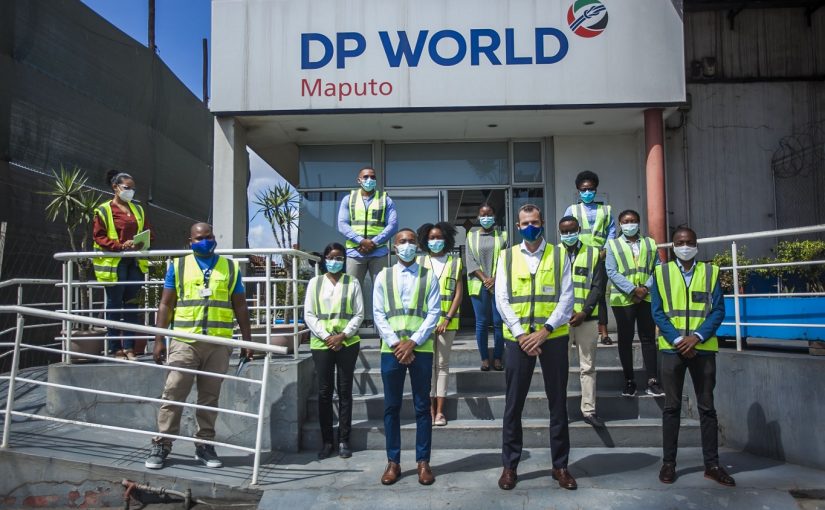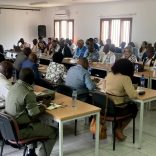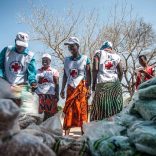Mozambique: Misinformation fuels crimes against persons with albinism - Minister
If you want talent you need to grow it – By MUVA

GROW 2021 candidates. [Photo courtesy: MUVA]
In countries like Mozambique, women are just over 50% of the population and over 65% of the population is less than 25 years old (source: index mundi 2020). When companies don’t look at neither youth nor women as talent, it means their pool of potential candidates is quite limited.
DP World one of the world’s largest logistics companies has decided to not ignore this pool of talent any longer. In 2018 the company added a second pillar to its sustainability strategy which used to focus on the oceans: support to women’s economic empowerment (DP World, 2018). In 2016, the maritime industry was already warned of “a serious shortage in the supply of staff in the industry due to a combination of factors, including an ageing workforce, lack of skills diversity and the industry’s inability to attract young new talent” (source: BIMCO, 2016). Last week’s press release presented the first 10 GROW candidates that have started their trainee programme.
With the support of MUVA, the GROW programme was designed. MUVA has conducted the mobilization, selection and soft skills training for the candidates. The selection process was designed to mobilise a large pool of candidates, to avoid exclusion errors, and to filter the candidates swiftly and efficiently. This approach enabled a process that was transparent, objective and based not just on good principles, but also doing what is good for the business. After all, young people, fresh out of university with little professional experience, all look alike on paper and CVs. It required a bespoke process to filter out transparently the best candidates. This is was used.
A total of 3042 applications were received, which were then filtered by a digital platform which reviewed the requirements for the positions and selected the 333 strongest applicants. Short interviews in English were conducted with selected candidates, as well as a test of literacy and numeracy which left 205 candidates in the race. An IT test was then applied, of which 99 applicants passed. Finally, the candidates participated in a workshop to measure their work-place attitudes and to observe and measure skills such as communication, team work, the ability to deal with change and ability to listen. This process narrowed the group down to 40 finalists who were then interviewed by DP World in order to select the strongest 10 candidates.
In general the proportion of female applicants was not much lower than male applicants: 42% from the total initial pool. However, in certain technical areas the gender difference was significant. In operations and planning, engineering, and IT respectively only 31%, 27% and 17% of the applicants were female. By applying the competency filters described above the final pool of selected candidates was 60% female in operations and planning and 40% in engineering. The selected candidates have been chosen not because they are women, but because they represent the strongest talent and optimum fit for the organisation. By increasing the initial pool, new talent was identified, including female talent.
The creation of new economic opportunities for women and their stronger inclusion in the work force (particularly into historically male dominated industries such as logistics) is a key part of women’s economic empowerment. It is also about ensuring that women have equal access to job opportunities as men, and are able to be identified and given the same chance at the same levels of responsibility and pay.
It is also imperative that after recruitment, companies make an effort to guide and support these candidates with high potential in their careers, enabling them to overcome challenges that they may face and excel in their work in order to maintain a productive, balanced and workforce where both women and men can excel. In today’s continuously changing business word, it is human capital, rather than the fixed or tangible assets that differentiates an organisation from its competitors.
About MUVA
MUVA is a Mozambican non for profit, initially created through an FCDO funded programme, that works to support female economic empowerment including by working with employers to supporting them finding young talents and supporting them to design and implement gender, as well as diversity and inclusion strategies.












Leave a Reply
Be the First to Comment!
You must be logged in to post a comment.
You must be logged in to post a comment.